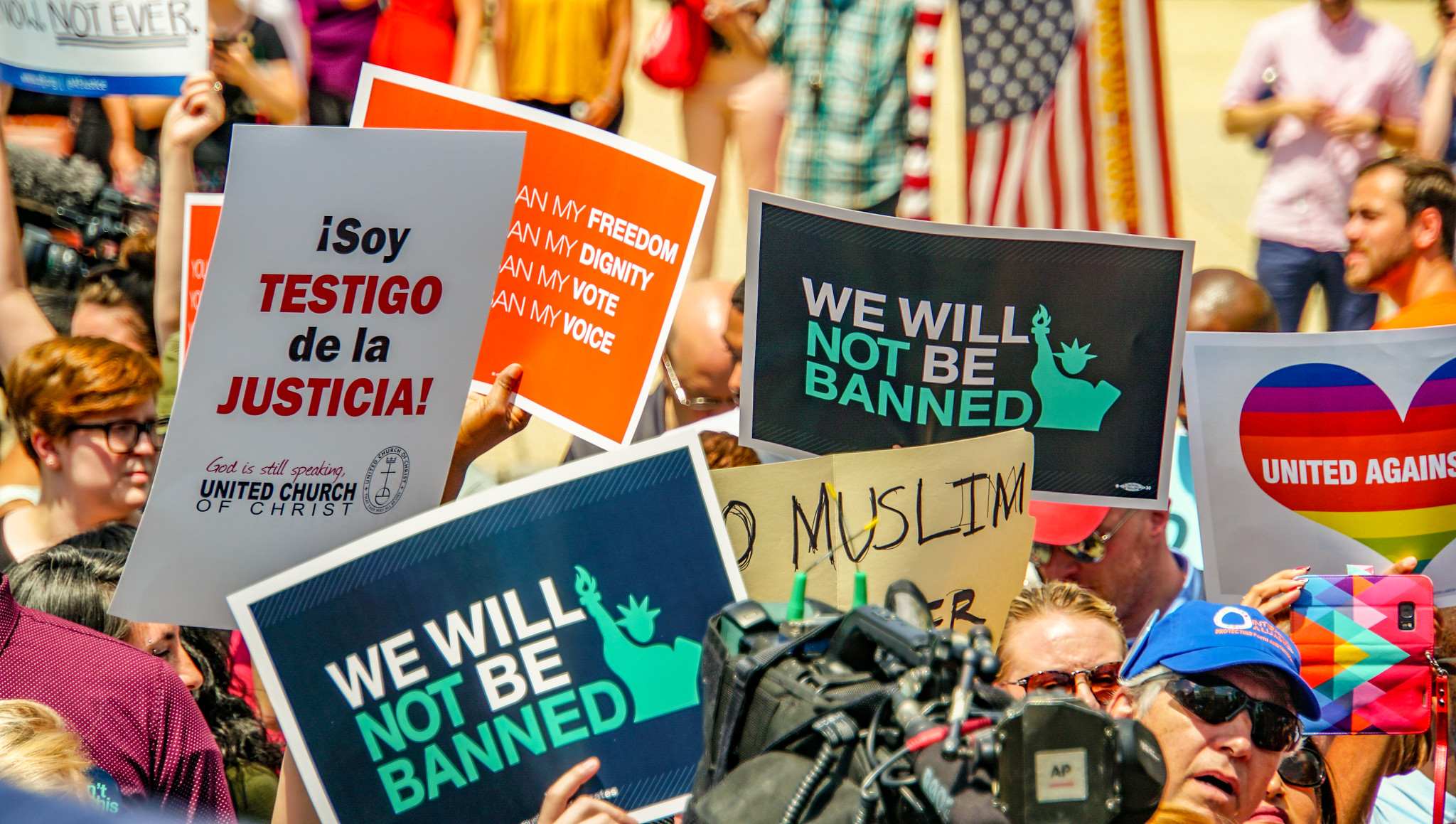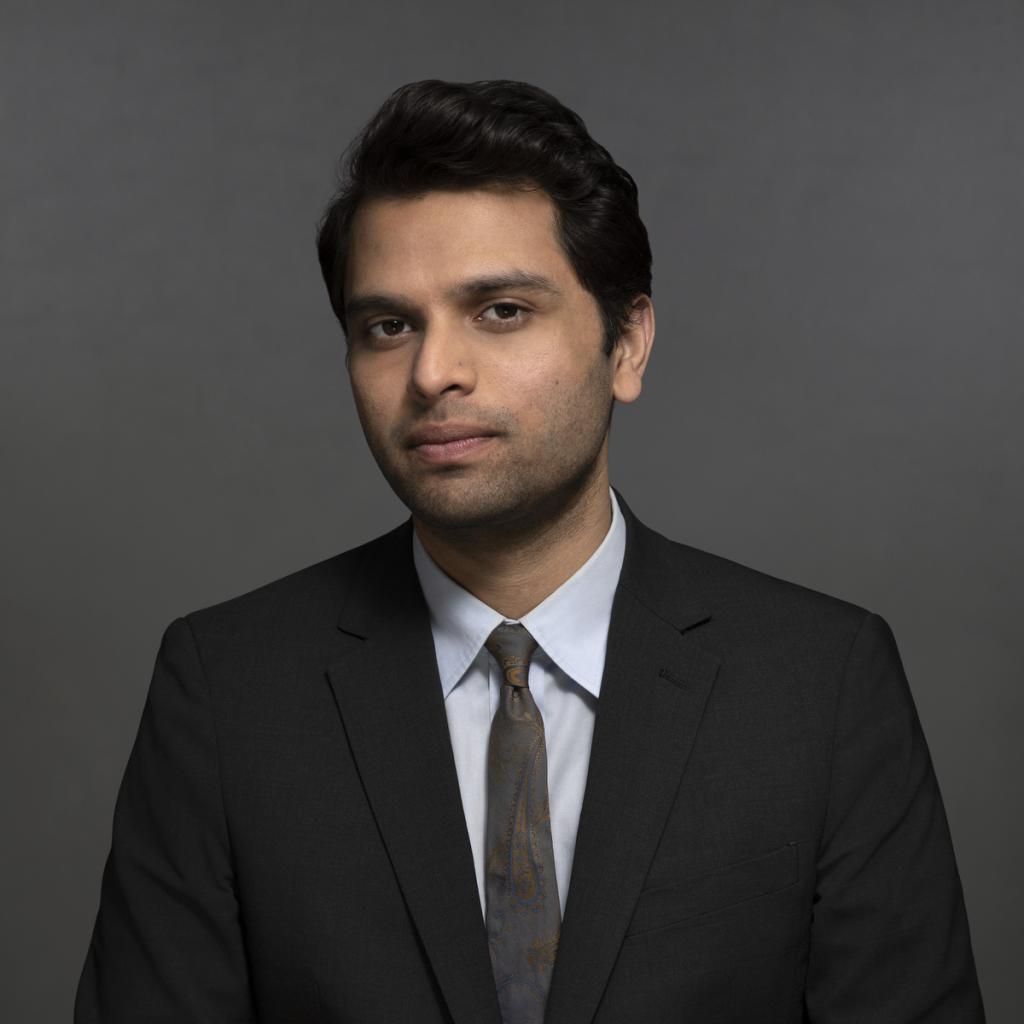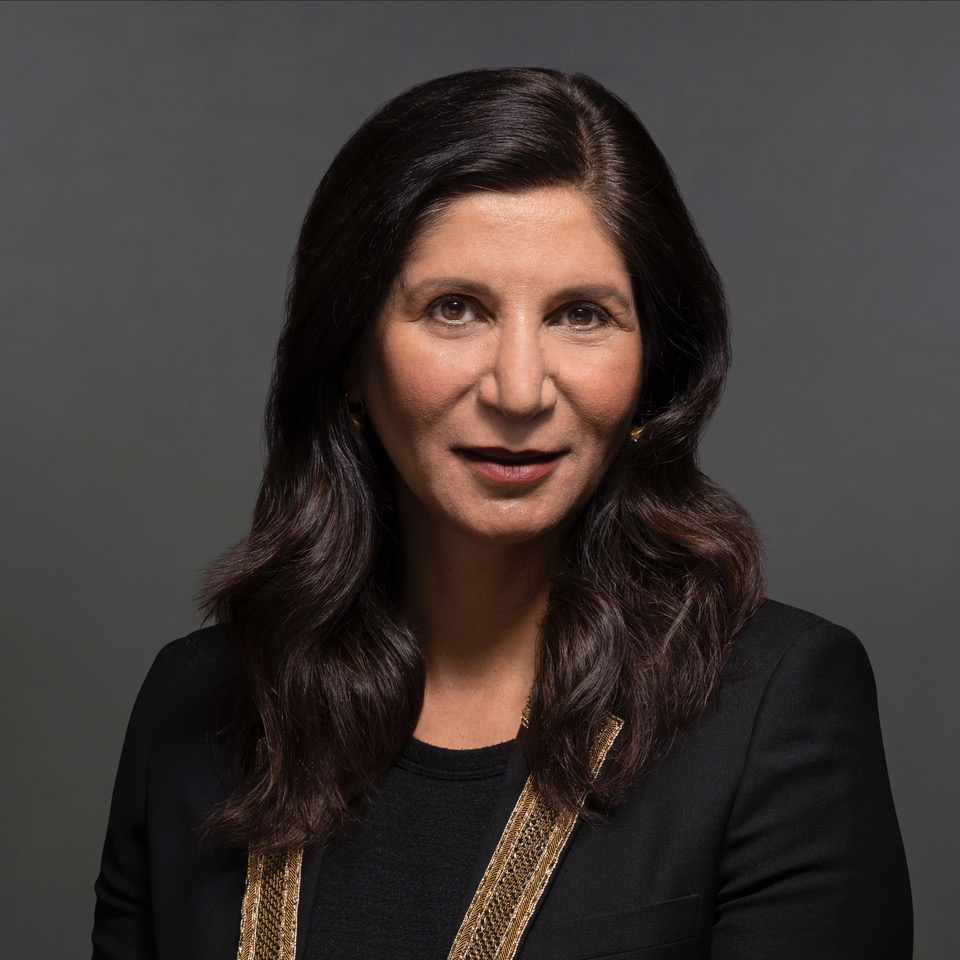Trump’s Travel Ban Did Not Make Americans More Safe
The ban caused grievous harm to American Muslims and undermined the United States’s international reputation.

Published by The Lawfare Institute
in Cooperation With

Writing in Lawfare on Feb. 4, Stewart Baker argued that President Biden’s repeal of the Muslim ban would compromise national security. He contends that an “unpopular and racist order” became a “calibrated security tool that depended not at all on the majority religion of the countries it affected” and that its revocation is essentially a political stunt that will damage U.S. national security. We disagree. The prospect of being placed on the banned list may well have incentivized a few countries to provide additional information to the U.S., but the program was still wrong and ending it won’t make Americans less safe.
The evolution of the ban cannot be divorced from its origin. Throughout his presidential campaign, Donald Trump vowed to keep Muslims out of the country. His attempts to follow through destroyed the United States’s reputation as a welcoming place for people of all faiths and caused grievous harm to American Muslims, whose welfare should at least bear mention in any discussion of the policy.
Families have been torn apart. Shaima Swileh was barred for more than a year and a half from entering the country to see her dying two-year-old son solely because she carried a Yemeni passport. Ismail Alghazali, a bodega owner from Brooklyn, never met his daughter who remained in Yemen with his wife and another child. Altogether, according to the State Department, more than 40,000 people remained barred from entering the U.S. through the end of 2020 because of their country of origin, rather than any problems with their visa applications. Many are the spouses, parents and children of Americans.
The ban hammered home the message that Muslims are terrorists and can’t be trusted—a mindset that had already become all too common in the U.S. after 9/11. The fact that all Muslim countries weren’t covered or that some non-Muslim countries were covered made absolutely no difference to those of us who felt the sting of being tagged as undesirable in our own country. Nor did it matter to those who sought to make Muslims feel unwelcome here.
It has long been a challenge for countries around the world to comply with best practices for traveler screening, such as issuing secure identity documents (such as electronic passports), reporting lost and stolen travel documents, and sharing information about possible terrorists or criminals. While the threat of a ban may have allowed the Department of Homeland Security to strongarm some countries into doing better, the bans do not—despite Baker’s claims—“rel[y] on objective measures of how much each country on the list helps the U.S. in screening that country’s travelers.” As the Cato Institute has meticulously cataloged, more than 100 countries failed to meet the baseline criteria identified by Homeland Security as it built a justification for the Muslim ban. In 2017, more than 80 countries did not issue electronic passports. According to Homeland Security officials, more than 100 countries—including the world’s most populous: India and China—do not regularly report lost or stolen passports. Even European countries, whose citizens enjoy visa waivers for travel to the U.S., do not always share information satisfactorily.
But these countries were not sanctioned.
Instead, in large part, the countries that did end up banned overlapped with those that Trump had publicly disfavored. The original ban covered mainly Muslim countries. Almost a quarter of the population of African nations—broadly disparaged by Trump as “shithole countries”—were covered in the original ban and its 2020 expansion. These selections simply cannot be divorced from the intent behind them, especially when the architects of the ban repeatedly affirmed in public that they wanted to keep Muslims and Black and brown immigrants out of America.
Any benefit from agreements to hand over facsimiles of documents from a handful of countries must also be weighed against the damage to the United States’s global relationships and reputation. More than 50 national security experts ranging from President George W. Bush’s CIA director, Michael Hayden, to Antony Blinken, now President Biden’s secretary of state, submitted an amicus brief to the Supreme Court in 2018 urging it to reject the scheme. They argued that national-origin bans are an “arbitrary and massively imprecise response” to address information-sharing issues and that the ban’s harms cascaded beyond the narrow context of visa screening by “impairing economic and political interchange and spurring anti-American sentiment.” In January, former DHS Assistant Secretary of Counterterrorism and Threat Prevention Elizabeth Neumann, whose 2019 testimony Baker quotes as evidence of the ban’s ostensible benefits, told the press that “[t]hese bans damaged our nation’s reputation. They were an unnecessary distraction from the actual security enhancements that were needed.”
Baker’s claim that the ban’s rollback means “[t]he visa window is open again, no matter how little information U.S. officials have about the applicants” is inaccurate. The burden of proof is always on the person applying for a visa, which won’t be issued if there’s a lack of information to screen them. Among other things, applicants have to prove who they are, document their reasons for entering the U.S. and demonstrate that they do not pose a public safety threat. Even getting approved for a short trip to Disney World requires applicants to dig up paperwork showing that they intend to go back to their home countries—that they have property or investments there, for example. Applicants’ names are checked against a multitude of databases of derogatory information, and anyone flagged is sent for additional screening. This requires applicants to produce even more information, such as 15 years’ worth of travel, residence and employment history—more than is needed for a Top Secret security clearance. Additional screening can take months, or even years, to complete.
The thoroughness of the U.S. visa screening process is reflected in the extremely low rate of screening failures: The Cato Institute has calculated that one in 379 million people that got permission to enter the country between 2002 and 2016 were deadly terrorists. Nor does the single example cited by Baker as evidence of the need for a ban support his case. In 2017, Sayfullo Saipov used a truck to run over eight people in a bike lane in New York City. He came to the U.S. from Uzbekistan in 2010, years before he carried out the attack, and there is no evidence to suggest that anything was missed during the visa screening process.
Black and brown Americans have been treated as security threats for too long—a tendency that found its apogee in Trump’s racism and xenophobia. The United States must reject this approach and instead embrace national security policies that protect all Americans, regardless of their race or religion, and enhance—rather than undermine—the country’s international reputation.




.jpg?sfvrsn=676ddf0d_7)

